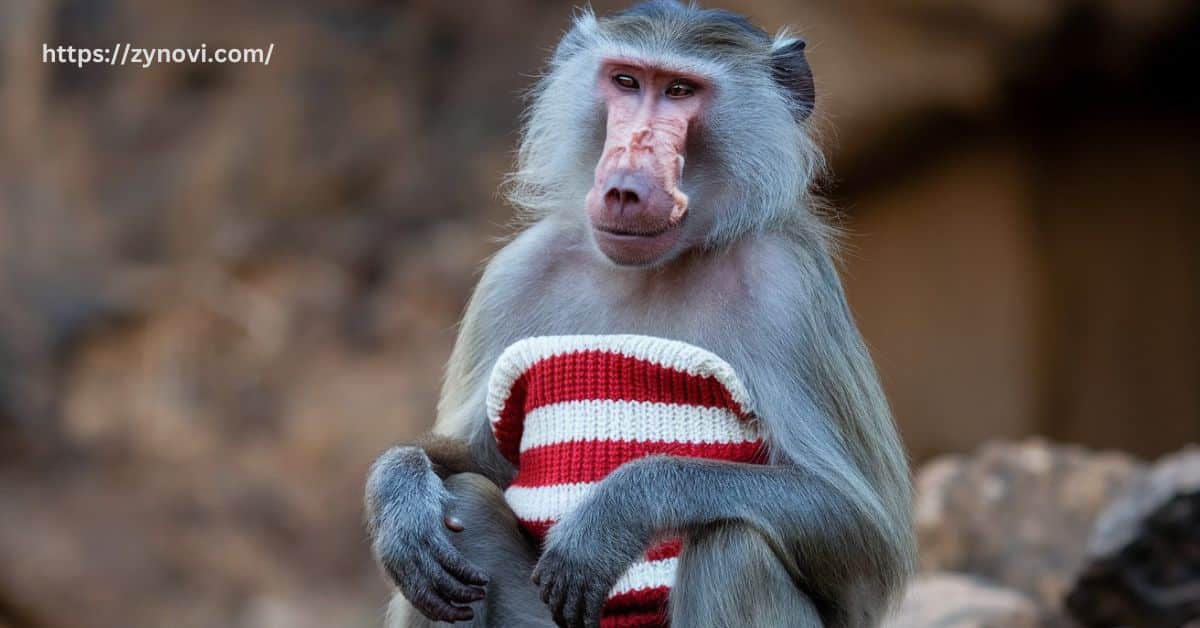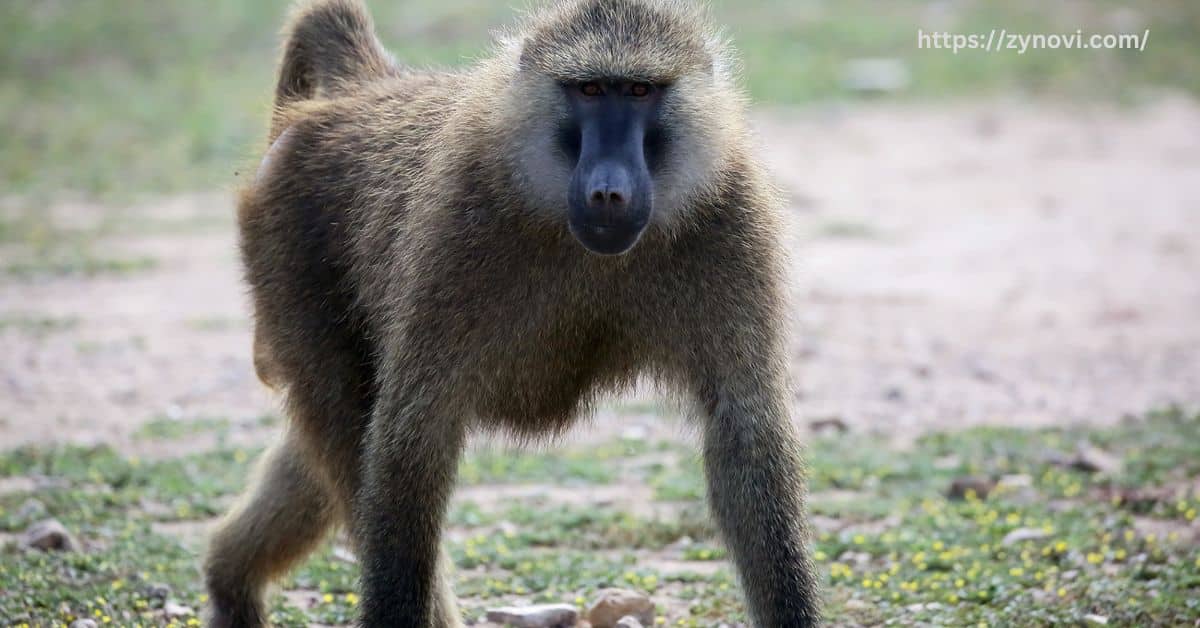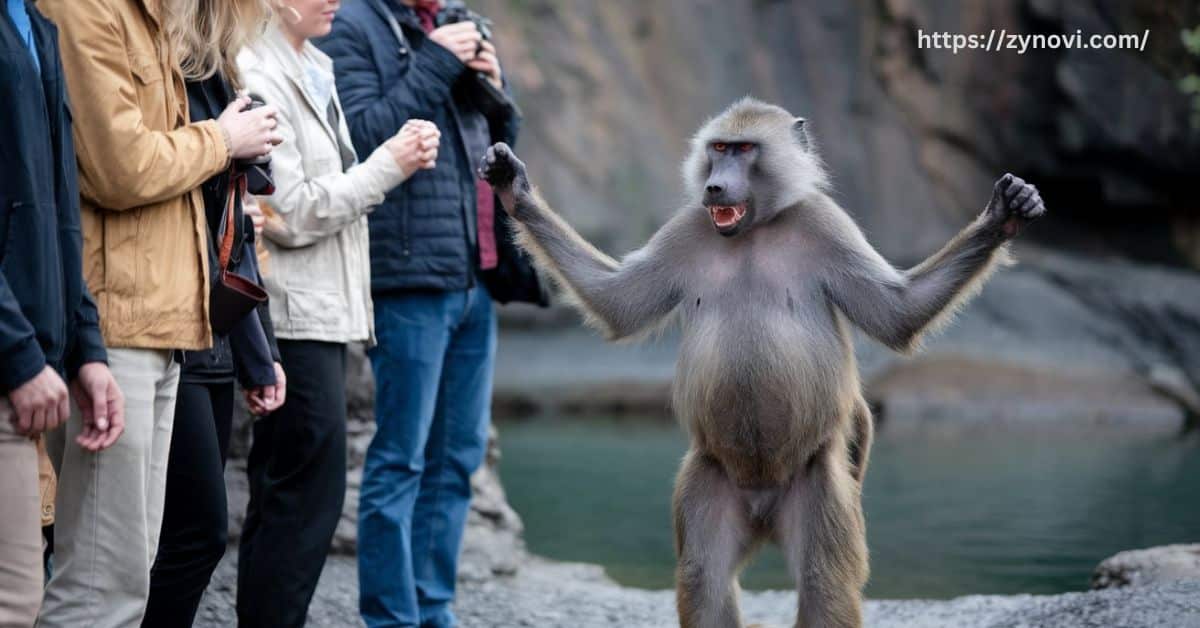Do baboons attack humans? Baboons can attack humans, but usually occurs due to specific triggers like food attractants or perceived threats.
If you’re curious about this wild question, you’re not alone! While these fascinating creatures might seem harmless from afar, there are certain situations where they can become aggressive toward humans. You might be wondering, what triggers such behavior, and how can you avoid it?
In this article, we’ll explore the real reasons behind baboon attacks, from food attractants to territorial instincts. By understanding their behavior and how to stay safe, you’ll be better equipped to enjoy these incredible animals from a distance without fear of an unwanted encounter. Keep reading to find out more!
What Are Baboons?
Baboons are large, ground-dwelling primates from the genus Papio, known for their intelligence and complex social behavior.
Native to Africa and the southwestern Arabian Peninsula, they thrive in a variety of habitats such as savannas, dense forests, rocky landscapes, and arid regions.
Their adaptability allows them to coexist in environments ranging from untouched wilderness to areas influenced by human activity.
Key Baboon Species and Their Characteristics
There are five recognized species of baboons, each with unique traits:
- Chacma Baboons (Papio ursinus): Native to southern Africa, they are the largest baboon species, known for their strength and resourcefulness.
- Olive Baboons (Papio anubis): Found across central and eastern Africa, these highly adaptable primates are celebrated for their intelligence.
- Yellow Baboons (Papio cynocephalus): Inhabit the savannas of eastern Africa, recognized by their slim builds and light golden fur.
- Guinea Baboons (Papio papio): Smaller and more compact, they reside primarily in the forests and savannas of western Africa.
- Hamadryas Baboons (Papio hamadryas): Native to the Horn of Africa and southwestern Arabian Peninsula, they stand out with their silver-gray fur and strict social hierarchies.
Baboons are omnivorous, consuming fruits, insects, small mammals, and even human-provided food in urban areas.
Their intelligence and problem-solving skills enable them to adapt to human-dominated landscapes, often leading to interactions and, occasionally, conflicts.
Do Baboons Attack Humans?

Baboon attacks on humans are uncommon but can happen, especially in regions where human and baboon habitats overlap. These interactions often arise when baboons are attracted to food, feel threatened, or perceive encroachment on their territory.
Although baboons are not inherently aggressive toward humans, their size, strength, and sharp teeth make them potentially dangerous in certain situations. Understanding these encounters is key to mitigating risks and promoting safer coexistence between humans and baboons.
Common Scenarios of Human-Baboon Encounters
- Urban areas: Human-baboon encounters are frequent in residential neighborhoods and tourist spots near baboon habitats, where food and waste attract them.
- Food raids: Baboons are resourceful scavengers and often target human food sources, such as picnic areas or unsecured trash, leading to direct confrontations.
- Provocation: Unintentional actions like sudden movements, eye contact, or approaching too closely can be perceived as threats, triggering baboon aggression.
Why Do Baboons Attack Humans?
Understanding the triggers of baboon aggression is key to preventing conflicts. Here are the primary reasons:
Food Attractants
A primary trigger is the availability of food attractants, such as improperly secured trash, outdoor dining areas, or intentional feeding.
Being opportunistic feeders, baboons easily associate humans with accessible food sources.
Over time, this learned behavior makes them bolder, increasing the likelihood of confrontations and aggressive actions during encounters.
Territorial Defense
Territorial defense is another key reason for baboon aggression. Baboons are highly protective of their territory and can view humans as threats or intruders.
When humans enter or disrupt their habitat, especially near baboon troops, the primates may react aggressively to defend their space.
This behavior is particularly common in areas where humans inadvertently encroach upon baboon territory, leading to heightened territorial tension.
Protecting Offspring
Protecting offspring is a strong driving force behind baboon aggression. Baboons are fiercely protective of their young, and any perceived threat to their babies, whether intentional or not, can provoke a defensive response.
If a human comes too close to a mother and her infant, the mother may feel the need to defend her young, leading to aggressive behavior to ensure their safety.
Provocation or Threat Perception
Provocation or threat perception plays a significant role in baboon aggression. Baboons are highly sensitive to their surroundings, and actions like direct eye contact, sudden movements, or loud noises can be perceived as threatening.
When humans engage in such behavior, baboons may feel provoked or cornered, leading to heightened aggression. These triggers can escalate tensions, making otherwise calm encounters turn dangerous quickly.
Encroachment on Natural Habitats
Encroachment on natural habitats is another significant factor contributing to baboon aggression. Due to deforestation, urban expansion, and agricultural activities, baboons are being pushed into areas closer to human settlements.
As their natural habitats shrink, they are more likely to encounter people, increasing the risk of conflicts. This overlap of human and baboon territories often leads to heightened aggression as the animals struggle to adapt to their changing environment.
Are Baboon Attacks Dangerous?

Baboon attacks, while uncommon, can result in serious consequences. Their sharp teeth and strong jaws can cause physical injuries, and there is a risk of disease transmission.
Risks Associated with Baboon Attacks
Physical injuries: Baboon attacks can result in bites, scratches, or blunt force trauma. These injuries may lead to infections, which could require medical treatment. In severe cases, the wounds might cause long-term damage if not properly treated.
Diseases: Baboons are known carriers of zoonotic diseases that can be transmitted to humans through bites or contact with saliva. Some of these diseases include rabies, herpes B virus, tuberculosis, bacterial infections, and tetanus, all of which pose significant health risks if contracted.
Comparative Aggression Among Primates
Comparative aggression among primates reveals that baboons are generally less aggressive than chimpanzees or gorillas, both of which have more intense territorial and social behaviors. However, baboons’ tendency to live in proximity to human settlements makes them more likely to interact with people.
Their resourcefulness and adaptability to urban environments can lead to more frequent human-baboon encounters, where aggression may occur in response to perceived threats or competition for resources.
How to Stay Safe and Avoid Baboon Attacks
Proactive measures can significantly reduce the risk of baboon aggression.
Safety Tips
Avoid feeding baboons: Feeding baboons creates a dangerous cycle, as it encourages them to associate humans with food, making them bolder and more likely to approach or even attack.
Maintain distance: Always keep a safe distance from baboons. Approaching them, especially in the wild, can trigger territorial or protective behavior.
Secure belongings: Ensure that all food and personal items are safely stored and out of sight. Baboons are skilled at scavenging, and anything within reach can become a target.
Avoid eye contact: Direct eye contact is often perceived as a challenge or threat. It can escalate tensions and provoke an aggressive response from the baboon.
Use deterrents wisely: While tools like noise-makers or spray deterrents may help, they must be used cautiously. Overuse or improper application can provoke baboons, making them more aggressive.
What to Do During a Baboon Encounter

If you find yourself face-to-face with a baboon, follow these steps:
| Situation | Action |
|---|---|
| Baboon approaches | Stay calm, avoid sudden movements. |
| Baboon shows aggression | Back away slowly without turning your back. |
| Baboon tries to grab food | Drop it and move away to de-escalate. |
Tip: Never try to outsmart a baboon they’re highly intelligent and unpredictable.
The Role of Conservation and Coexistence
Addressing human-baboon conflicts requires a balance between conservation and practical measures.
Conservation Efforts
- Protecting habitats: By preserving baboons’ natural habitats, such as forests, savannas, and rocky landscapes, we can reduce the pressure that forces them into urban areas, where human-baboon interactions are more likely to occur.
- Education programs: Educating local communities and tourists about baboon behavior, safety measures, and the importance of not feeding or disturbing them can help prevent conflicts and promote peaceful coexistence.
Coexistence Strategies
- Responsible behavior: Practicing responsible behavior, such as not feeding baboons or engaging in actions that might be perceived as threatening, helps reduce the likelihood of aggression and promotes a safer environment for both humans and baboons.
- Safe practices: Implementing baboon-proof measures, such as using secure trash bins, fencing, and keeping food sources well-contained, can effectively prevent baboons from scavenging in human areas, thereby minimizing potential conflicts.
FAQs
Is a baboon dangerous to humans?
Yes, baboons can be dangerous, especially if provoked, as their powerful jaws and sharp teeth can cause injury.
Have baboons ever attacked humans?
Yes, baboons have attacked humans, though such incidents are rare and typically occur due to food attractants or territorial defense.
What to do if a baboon attacks you?
Stay calm, avoid eye contact, and slowly back away. If attacked, protect yourself using nearby objects and seek immediate medical attention.
How often do baboons attack people?
Baboons rarely attack humans, but the likelihood increases in areas with habitat overlap or where food is accessible.
Conclusion: Do Baboons Attack Humans?
In conclusion, while baboons rarely attack humans without reason, certain factors can trigger aggressive behavior. These include the availability of food attractants, perceived threats to their territory, or even unintentional provocation. Baboons are highly intelligent and adaptable animals, and understanding their natural behaviors is essential in preventing conflicts.
By taking preventive measures such as securing food, respecting their space, and avoiding direct confrontation humans can reduce the risk of aggression. Through responsible coexistence and mutual respect, humans and baboons can share environments without significant conflict.
“The key to living alongside wildlife is respect and awareness. Only through understanding can we foster harmony between humans and nature.”










